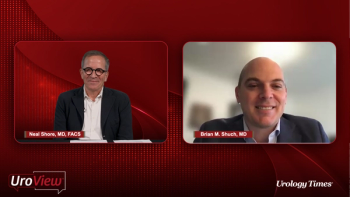
Available CV and CU Data and Potential Impact in The Field
An expert urologist summarizes the available CV and CU data for the various pre-biopsy biomarker test options, and opines on how use of these tests might impact patient risk stratification, subsequent management, and/or health outcomes.
Episodes in this series

Dr. Gerald Andriole: As a family, the biomarkers that are available do–many of them do two things, they allow us to avoid an unnecessary negative biopsy in men who don't have prostate cancer, and particularly the other advantage of most of the biomarker, especially say, for example, 4K, they enhance the identification of clinically relevant prostate cancer. And the biopsy avoidance rates are somewhere between 20 and 40%, pretty much for all of the biomarkers that we've been discussing. None of the biomarkers is perfect, as you would expect, so notwithstanding a very high negative predictive value, it's not 100%. So, if we're going biopsy based on some of the biomarker results that clinicians would use, there's still going to be a certain miss rate for progressive cancer and the lower that miss rate, the better. And the miss rate can be as low as 3 or 4% for a biomarker such as 4K, or as high as 6 or 8% for some of the other biomarkers.
I don't want to miss a high-grade or aggressive prostate cancer, so I think that reaffirming the need to proceed with a prostate biopsy in a man at risk for high-grade or aggressive prostate cancer is a very, very good thing. Yes, it's also good to avoid a negative biopsy, but I think while that's important, it's not quite as important as enhancing the detection of a clinically relevant cancer. So, in a sort of rank order format, I would say that biomarkers that lead me to identify the patients at highest risk with the most aggressive prostate cancers is better than a biomarker that results in many, many fewer biopsies, but at the cost of missing a higher proportion of the important cancers that these patients have.
Newsletter
Stay current with the latest urology news and practice-changing insights — sign up now for the essential updates every urologist needs.



